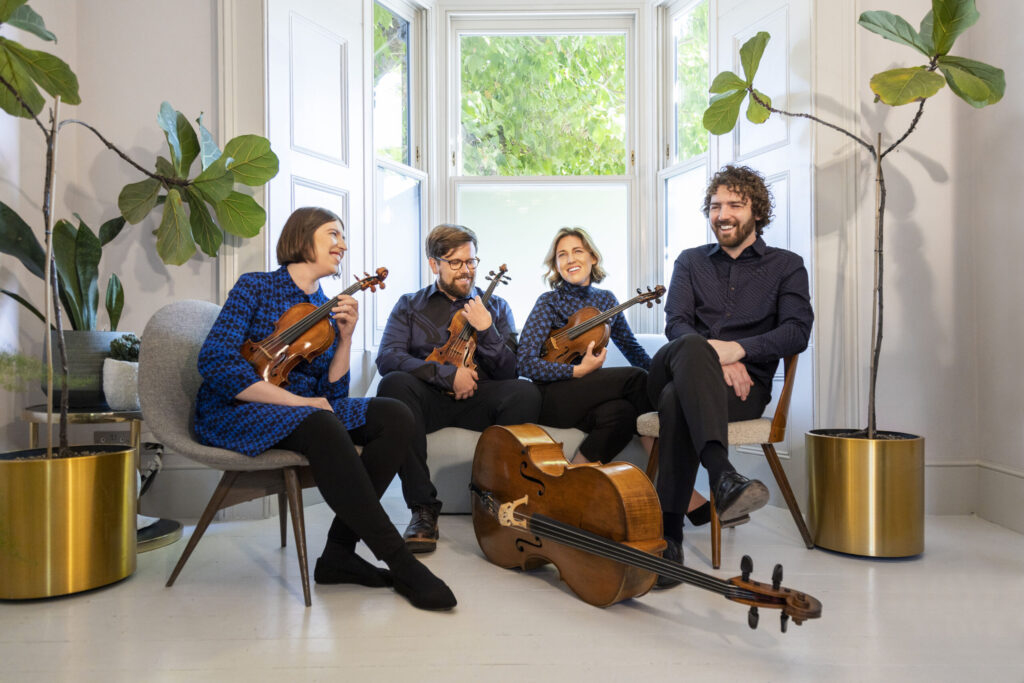
On Nov. 12, as part of the Sundays with Coleman 2023-2024 chamber music series at Caltech’s Beckman Auditorium, the Castalian String Quartet performed a concert of three very demanding works: the Quartet No. 1, “Kreutzer Sonata,” by the Czech composer Leoš Janáček, the Quartet No. 6 in F minor, Op. 80 by Mendelssohn, and the Quartet in B flat major, Op. 130, with Grosse Fugue, Op. 133 by Beethoven.
On the surface, these works seem to have little in common except that they are all string quartets. However, each contains moments of tranquility interrupted by bursts of energetic and furious playing. This juxtaposition occurs in each of the four movements in the quartet by Janáček and in individual movements in the other two quartets. Thus, except for brief moments of calm, for example the third movement of the Mendelssohn quartet and the fifth movement of the Beethoven quartet, it was an afternoon filled with angst in the music. The second violinist, Daniel Roberts, admitted as much after the Janáček and before the Mendelssohn when he, in jest, apologized to the audience for disturbing the beautiful sunny Sunday afternoon in Pasadena.
The Castalian String Quartet usually consists of Sini Simonen on first violin, Daniel Roberts on second violin, Ruth Gibson on viola and Steffan Morris on cello. However, because both Simonen and Gibson are on maternity leave, they were replaced by Sean Lee on first violin and Natalie Loughran on viola. However, if one had not known that ahead of time, one would not have been able to tell. The four players sounded like they’ve been playing together a long time. They were tight and perfectly in sync all afternoon.
There were no prima donnas present on Sunday afternoon. The quartet held back each time an individual member’s part needed to be heard. It was a democracy that worked well, allowing the melodic lines of each instrument to rise above the rest. These three string quartets required constant attention to detail, concentration and energy that must have left the players spent and exhausted at the conclusion of the Grosse Fugue, which itself contains a whole universe of tempos, dynamics and different structures and comes in at approximately 15 minutes! When it was first performed, the Fugue was condemned as incomprehensible. Even today, it requires the utmost attention by the listener. The Castalian Quartet threw their all into it resulting in a memorable performance that brought the audience to their feet.
The next two concerts in the Coleman Chamber Music Association series take place on Jan. 21, 2024, with the Merz Trio performing all three of the Brahms piano trios, and then on Feb. 18, 2024, with the famed Takács Quartet performing works by Haydn, Bartók and Beethoven. All concerts take place on Sundays at 3:30 p.m. in Caltech’s Beckman Auditorium.
—Henry Schlinger, Culture Spot LA
For more information, visit https://www.colemanchambermusic.org.
Photo credit: Castalian String Quartet, photo by Paul Marc Mitchell





